Here's a thought about Elon Musk
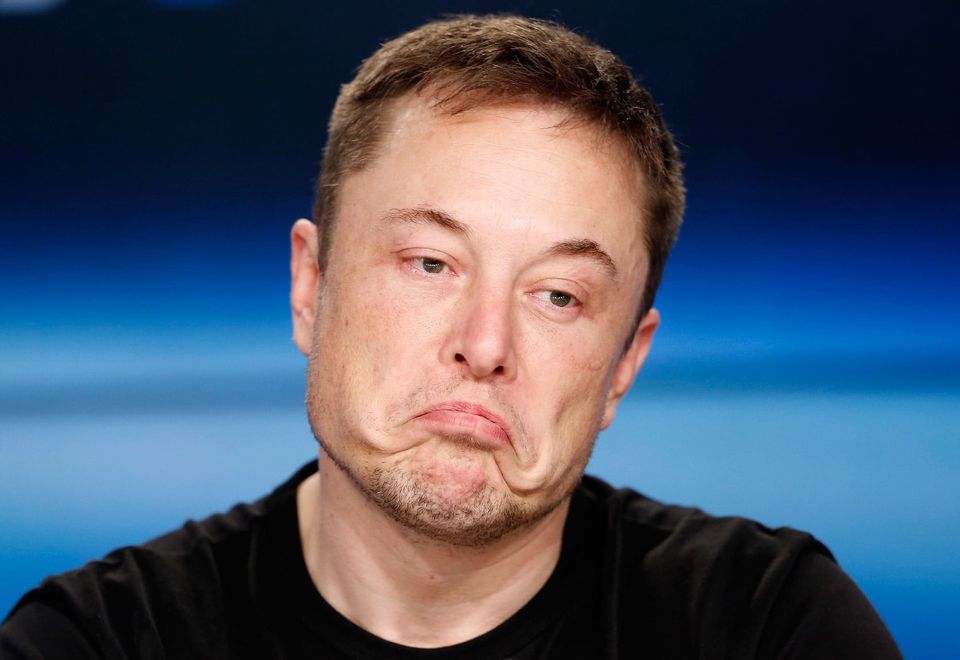
What I read: This very long thread from Capitol Hunters, a group that gathers, organizes, and archives materials related to the January 6th attack. You can find that information here. But the thread I read (and reread) details Elon Musk’s many lies about his credentials and training.
What I learned: We, the public, are easily wooed by engaging people (mostly white guys) who declare themselves to be geniuses and believe in the lie so hard that they convince everyone else. Also, Elon Musk is not a genius.
I fell for it, too. Back in the early 2000’s, when Elon Musk first started to appear in business headlines, I believed the hype. Some very smart and credible people said that Elon Musk was a young genius, a brilliant businessman, and an ethical capitalist who wanted to help the environment and make the world a better place.
I can dispense with the latter myth right away: Musk isn’t particularly interested in making this world a better place. It seems he’s on board with the Effective Altruism (EA) movement, an ideology outlined by Oxford philosophy professor William MacAskill that mostly encourages billionaires to donate money to causes that will help future generations. There are many, many problems with EA that I won’t detail here.
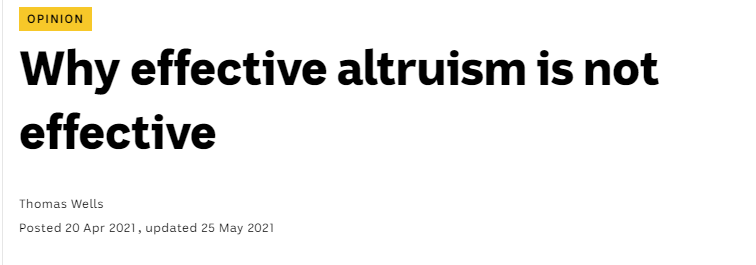


One of the most glaring deficiencies is that EA gives people carte blanche to pursue wealth, so long as they donate a sizeable portion of it to the causes they deem worthy. Another is that the focus is on future generations, and so many followers are more interested in colonizing other planets than they are in battling climate change on Earth.
The argument most often made in support of the “Musk is a hero” myth is his record on the environment. He owns Tesla, after all, the superstar EV automaker. Tech columnist Farhad Manjoo wrote that “through his endeavors in solar power and electric cars, Musk might do more to combat climate change than just about any lefty environmental activist or politician you can name.”
The truth behind this myth? Tesla ranks dead last in a list of tech companies making progress to meet the Paris Agreement climate goals. It earned an F grade in the “Road to Zero Emissions” report, falling below even Chevron and Exxon. Tesla is also under investigation by the SEC right now for failing to disclose the risk of fire with its solar panels.

Musk has given one public donation so far to a cause connected to climate and it was to X Prize, a carbon capture project that Musk founded. He’s also rebuffed suggestions that he invest in public transit, although improvements in that field would have a massive impact on climate, and he even pretended to be interested in building a Hyperloop train in California.
As it turns out, he was never planning to build the train. Instead, he used his feigned interest to derail (excuse the pun) the very real plans to build a high-speed train system between San Francisco and LA. Why would he do that? Because a high-speed train would interfere with sales of Teslas, of course.
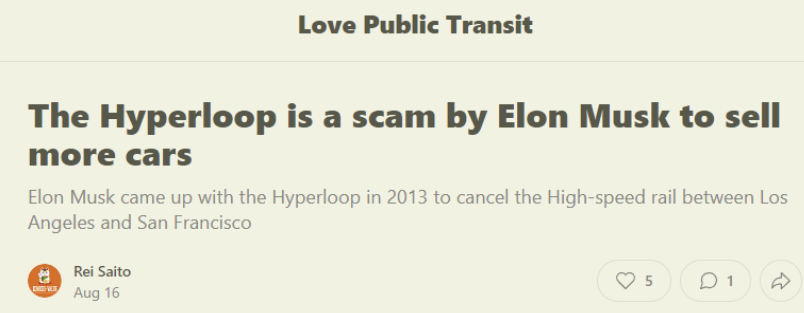
Tesla only shows a profit, by the way, because the company is aggressively selling carbon credits, which doesn’t help the environment at all. In the past five years, Tesla has earned more than $5 billion selling carbon credits to some of the biggest corporate polluters in the US. While many people view Tesla’s success as evidence of Elon Musk’s business acumen, the company would be losing money were it not profiting off industrial pollution and the sale of bitcoin.
And that brings us to the real focus of this newsletter: the legend of Elon Musk, genius entrepreneur. This is and always was a lie sold to the public by none other than Elon Musk. If there’s one thing Musk does know how to sell, it’s fictional tales about his genius.
America loves a brilliant white man. Going back to the 1700s and the founding of the nation, we bought into the “self-made man” ideology. From Benjamin Franklin, Andrew Carnegie, and John D. Rockefeller to modern examples such as Howard Schultz, Steve Jobs, and Oprah... all have been idolized and imitated. Even today, Forbes maintains a “Self-Made Score,” rating the richest people in America according to how much of their success was earned rather than inherited.


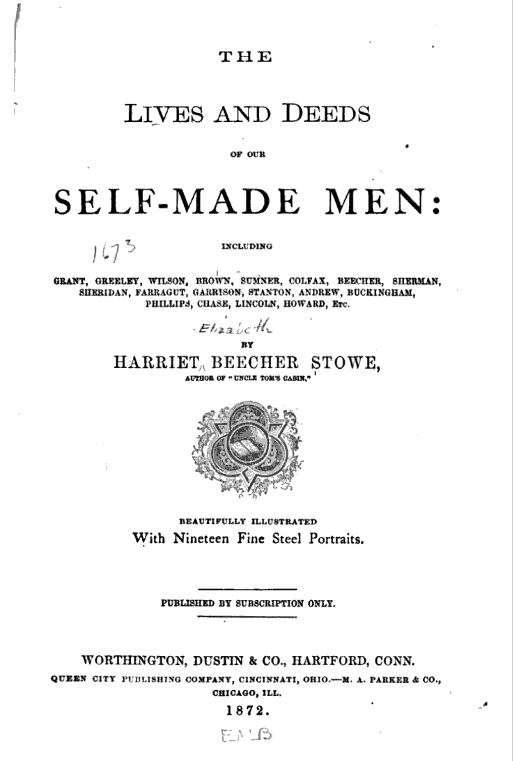
The reality, of course, is that Americans are less likely to work their way to success than people in most other developed nations. While nearly 40% of us believe it’s common for poor children to grow up and become rich, and over 70% believe hard work and drive are the most important factors in gaining success, that’s far from the truth. The wealth gap between rich and poor in the US has more than doubled between 1989 and 2016 and the odds that you will drop into poverty far outweigh your chances of becoming rich, especially if you’re not white.
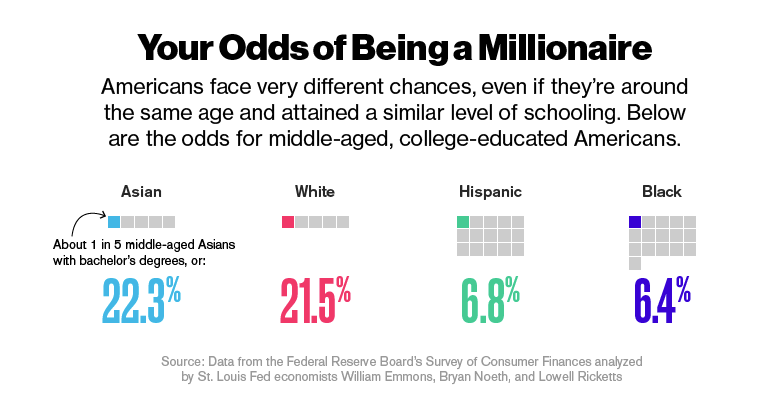
Elon Musk has spoken repeatedly about having an unhappy childhood, something that’s nearly impossible to fact-check. But he’s also heavily implied that he grew up poor, telling stories about going door-to-door in South Africa selling chocolate to “rich people.” He also says he lived on $1 a day when he moved to Canada at age 17.
But his father claims the family was stupidly wealthy. Errol Musk said, “We had so much money at times we couldn’t even close our safe.” Elon said that when he lived with his father in the 1980s, Errol owned “thoroughbred horses, a yacht, several houses, and a Cessna. One of their homes was in Waterkloof, a leafy suburb of Pretoria that was popular with foreign diplomats.” The young Elon traveled all over the world with his family.
Whether the family earned all that cash from Errol’s stake in an emerald mine is in dispute, but Errol Musk has said that his son once walked through New York with raw emeralds in his pockets and sold two of them at Tiffany & Co. for $2,000.
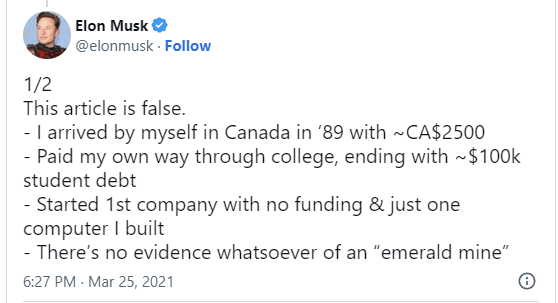
It’s hard to take seriously any of Musk’s claims about his history, as it’s been proven repeatedly that he has lied about his credentials and other important biographical facts. This part of the story is beautifully laid out in the Capitol Hunters thread. He’s told various stories about his college degrees, saying that he earned degrees from UPenn in Physics (false) and Computational Physics (this degree doesn’t exist).
Musk has said that he started a PhD at Stanford (false), that Stanford had agreed to let him finish a bachelor’s degree after completing a PhD (false), that the Dean of Graduate Studies at Stanford sent him a letter of admission (false), and that he got an H1-B visa in 1995 because of his college degree. Both parts of that latter statement are false because he didn’t have a degree in 1995 and he never got such a visa. At that time, he was in the US illegally, in fact.
If following the breadcrumbs appeals to you, I highly recommend reading through the entire thread, as it is carefully documented. There is a video of Stanford’s former president John Hennessy, for example, explaining that Musk arrived at the school and then left after two days. Musk got up to speak after Hennessy’s introduction and didn’t correct him. Musk has been sued twice for fraud, both suits partly based on alleged mistruths about his education.
I don’t particularly care about Elon Musk’s credentials, but his pattern of lying about them matters because it aligns with his habit of weaving an identity as a brilliant tech entrepreneur and scientist out of almost nothing.
Musk’s first company was Zip2, founded with his brother using a financial gift from their father of nearly $30,000. Zip2 was designed to be an online yellow pages using tech they bought from a GPS mapping company. The company had slow sales (it never made a profit) and the brothers relied on their dad’s connections to obtain venture capital funding to stay afloat.
Despite a lackluster pitch and what’s been described as “some mediocre presentation skills by Elon Musk,”, the VC firm nonetheless decided to give them $3 million. (I will point out that a woman would almost certainly not have received the funds. Fintechs founded by women have raised about 1% of total investments in the industry over the past 10 years. A record $150 billion was invested in startups in 2021, but less than 3% of it went to founders of color and even less to women. This theme will return again and again throughout Elon Musk’s history.)
Musk pushed to become CEO at Zip2 but was ousted by the board. That would be only the first time he would push for the top position at a company and end up getting bounced by board members. Four years after the Musk brothers started the business, Compaq bought Zip2 for $307 million and Elon netted $22 million from the sale.

Here’s archival video of 28-year-old Musk in 1999, showing off his McLaren F1, a car now worth more than $20 million. He crashed it months later when his passenger, billionaire Peter Thiel, asked him what the car could do and Musk replied, “Watch this.” The car was uninsured.
In 1999, Musk used his earnings from the Compaq deal to launch a financial services company called X.com. The company’s investors booted him out of the CEO position and replaced him with Bill Harris. Less than a year later, X.com merged with Confinity, the company that created and launched PayPal. Again, Elon Musk did not create PayPal, despite his many attempts to imply that he did. But Musk recognized a good thing when he saw it, deciding to dump X.com’s products and focus on PayPal instead.
Still, after just 6-7 months as PayPal CEO, Musk was again ousted, after the company’s first product was voted one of the ten worst business ideas in 1999. PayPal forced him to step down in 2000.
Two years later, the service was acquired by eBay for $1.5 billion. Please take note of how short-lived Musk’s tenure was at all three of these companies before they were sold for tens of millions more than he invested.
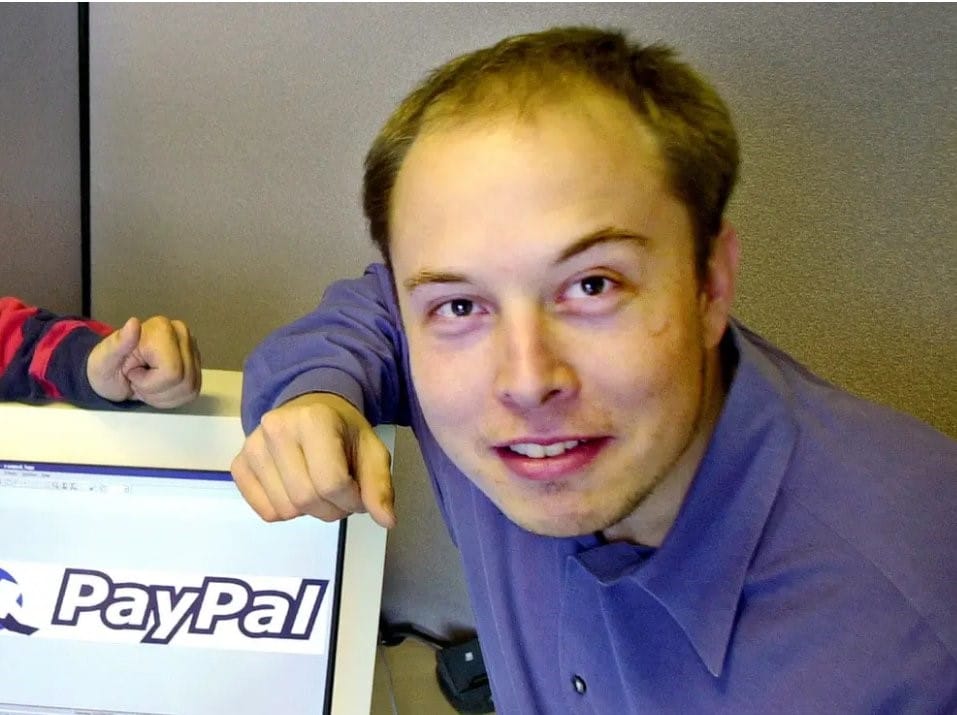
Rinse and repeat this pattern multiple times and you have Elon Musk’s career of failing up, making dozens or even hundreds of millions every time. The folks at Kickresume Blog created a massive infographic of Musk’s record of blunders. They say it’s proof that “your failures are probably going to be just as impressive as your accomplishments,” but I don’t think that applies to Musk. To believe that, you’d have to believe that Tesla is a big success as an automaker (it is not), that SolarCity is a great success (also not), that PayPal was successful because of Musk (very hard to demonstrate), and that SpaceX owes its success to him.
Many people don’t know that Musk tried to be a musician as well, releasing a rap track in 2019 (don’t look it up – it's awful) and an EDM track in 2020 (also horrible).
Tesla was founded in 2003, not by Musk but by engineers (as in, they actually earned degrees in engineering) Martin Eberhard and Marc Tarpenning. Musk became the majority shareholder in 2004 and became the board chair and reportedly led the drive to push Eberhard out of the company. Last year, Musk changed his title to “Technoking.”
The first Tesla, a Roadster, was described by Jeremy Clarkson of “Top Gear” as a “barely running science experiment.” The release of the Model X was delayed by 18 months. All the automaker’s cars are recall-ridden. Earlier this year, Tesla recalled a third of all the cars it’s ever produced. The website Tesladeaths.com reports that the cars have resulted in 335 deaths so far, plus 19 related to the autopilot software. By comparison, the site authors say, “The closest categorization to apply to Teslas is large or midsized luxury SUVs as they certainly are not cheap, with the total cost of a hard-to-find standard Model 3 still more than 35,000 USD. As shown by the Insurance Institute for Highway Safety chart, there are multiple models that have zero [deaths].”
SpaceX is perhaps the strongest data point on Musk’s CV but there are a lot of caveats here. First of all, the company does not do any R&D. It relies on NASA’s patents, something that Musk has touted as a strategy to evade Chinese corporate espionage. Musk has had labor problems in just about every company in which he’s invested, from Zip2, where one executive said he would explode in fury if employees weren’t still working in their cubicles at 9pm, to Tesla, which has been hit with lawsuits alleging wage violations, safety violations, civil rights violations, sexual harassment, and hostile work environments for Black, female, and LGBTQ+ employees.
At SpaceX, employees released an open letter earlier this year saying that “Elon’s behavior in the public sphere is a frequent source of distraction and embarrassment for us.” The letter demanded that the company “define and uniformly respond to all forms of unacceptable behavior.” Eight employees were fired after the letter’s release and they’re now suing for wrongful termination.
I’m not going to bother listing all of the lawsuits that have been filed or are currently pending against Musk or his companies, as the list would be too long. If you read the allegations in the suit filed by the California Department of Fair Employment and Housing, it will turn your hair grey.
Musk sent low-orbit satellites over Ukraine this year to provide Internet access after the Russian invasion but refused to block Russian state media channels because he is “a free speech absolutist.” That’s why, according to him, he wanted to buy Twitter as well, but this newsletter is already long enough without delving into the many bone-headed mistakes he’s made in the Twitter debacle.
This could continue for pages and pages and pages. My point is not to tear down Elon Musk. The larger and more significant point is that Musk was never what he claimed to be, and yet most of us fell for the story about his genius, his business acumen, his scientific knowledge, and his entrepreneurial brilliance. After examining the evidence, he deserves none of those compliments.
More importantly, only a white man could fail and fail and fail throughout his career and yet end up years later as the richest guy in the world, with millions of others ready to defend his reputation as a genius. This thread that debunks several of the Musk myths ends by saying “Elon Musk is no better or well-intentioned than other billionaires. He’s just good at acting like it.”
I’m not sure his acting skills are all that good. I think, like Tinkerbell, Musk might disappear if we all stop believing in him.
If you read this newsletter and value it, consider going to the paid version.
You can follow me on BlueSky here, and Instagram here — and you can always reach me at celeste@celesteheadlee.com. Thanks for being here! Be kind and be well.